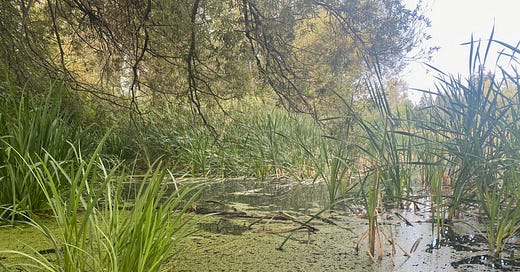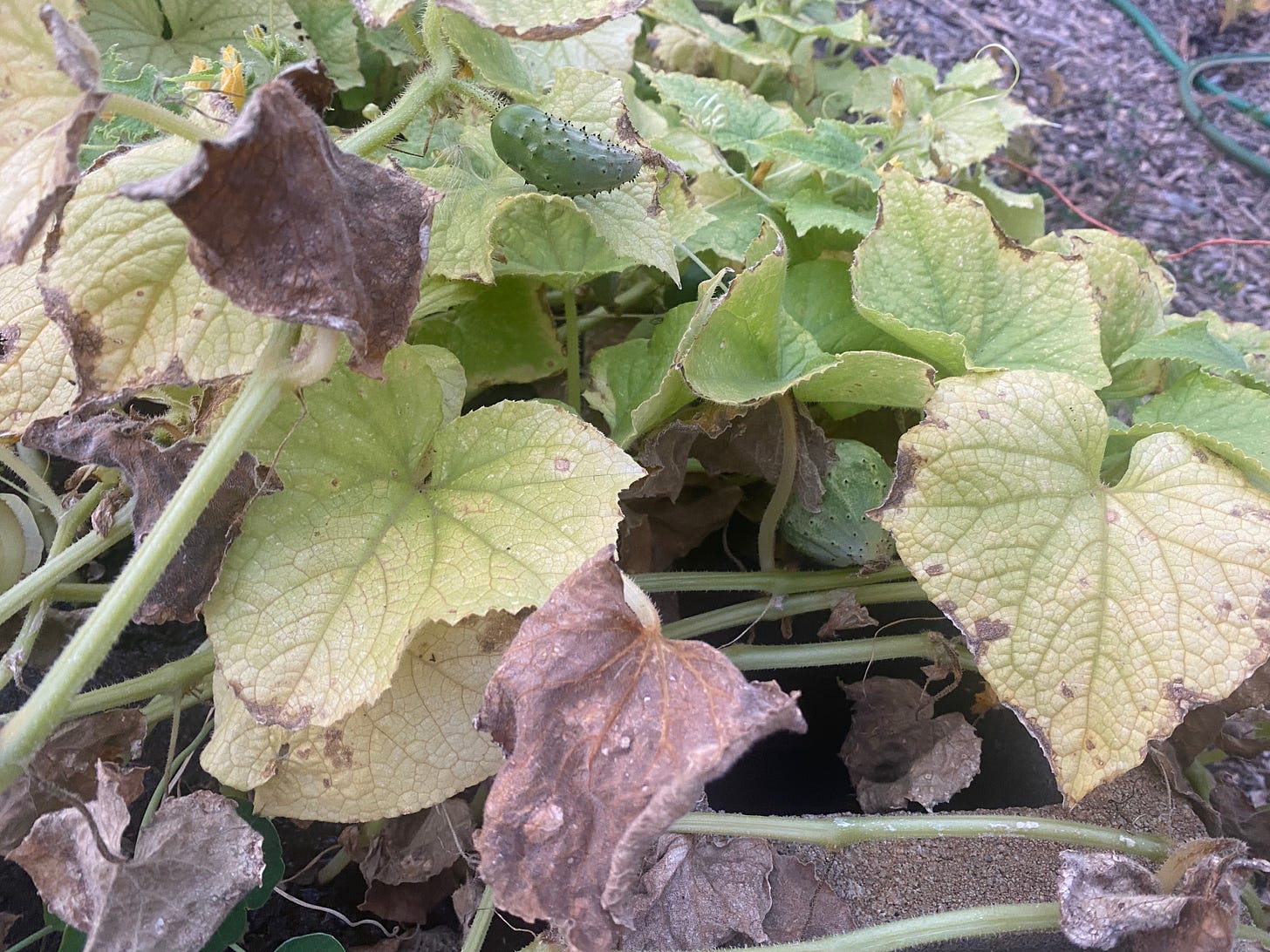“People are constantly forced to choose between having freedom and having success and stability; freedom with suffering or happiness without freedom. The majority choose the latter.” —Svetlana Alexievich, Secondhand Time: An Oral History of the Fall of the Soviet Union
I’ve had a lot of conversations this week along the lines of “why . . . ?” “how can . . . ?” “what should . . .?” I wish there were answers. Why do people believe things that aren’t real so deeply that they’re almost willing to battle over them? How can we find ways to work with people whose values are so different from our own? What should we do with our lives, with our community, to save the world? Why do humans inflict so much suffering on one another?
Where are our limits? Where are everyone else’s? How do we find ways to respect our own boundaries when so many things are falling apart? Is that even possible? How do we do this human thing together when a lot of people want to skip the “together” part? The questions exist because there are no other choices. Even isolated, we’re interconnected.
—-
For some reason I got caught up with the rereading of Pankaj Mishra’s Age of Anger, which started last week when I was having trouble sleeping a few nights. It’s less engaging than I remember, or maybe just has a lot more characters I’m having trouble keeping track of—so many philosophers and poets and musicians and angry populists!—but the main theme of “this upheaval and anti-‘elite’ anger has happened so many times in so many places over so many centuries that you have to look at the deeper forces behind it” is about what I remember it being. It’s certainly not an uplifting book, especially when I consider how many times I’ve heard some version of “we just need a revolution/breakdown so we can start all over and fix things” over the last few years. Which was one of the points of that 6-part BBC documentary by Adam Curtis I talked about a while back (thanks again to Kat for that one—I don’t know where you can watch the full thing now, but it’s definitely a mind-twist). It also reminds me, as so many things do, of Octavia Butler’s 1995 science fiction novel Parable of the Sower and how prescient she was about how societal erosion would track alongside climate degradation.
Which leaves us where? I have no idea, but it’s encouraging how many people I hear from or meet who want something more than to burn it all down. Who understand that burning it all down just causes suffering to people who have the least ability to escape the burning, and that the forces that cause the most problems can withstand a temporary societal collapse. That is, burning everything down to start over fixes exactly nothing.
—-
For some reason all of this reminds me of how the “walking composition” idea first started. It wasn’t mine at all. I was at an interdisciplinary residency at the Banff Centre for Arts & Creativity in 2016, and at the end of the two weeks a composer from Vancouver who writes all sorts of interactive compositions (I’m not even sure what they should be called) handed me a sheet of paper with a “walking composition” on it. It’s a piece of art, the way he wrote instructions (notes?) to, “over the course of five hundred steps,” tread, stroll, pace, meander, step, and pause to breathe once in a while.
I followed (performed?) that composition for a long time, and at some point it turned into a practice that I put on Instagram, to walk and think about one specific thing. And then to here, where I thought the walking compositions would be similarly short, to provoke an idea, but instead seem to have tapped into a part of my mind that wanted to unravel at length.
I should probably just let it. Unravel, that is. But also find my way back to the original composition, because it’s what led me deeper into the idea of embodiment, and the knowledge that how we physically interact with this world we’re on helps determine—in some inexplicable and definitely unpredictable ways—how we interact with one another. Maybe what we’re doing is a walking composition on the scale of nearly eight billion people.
Walk. Breathe. Walk. Breathe. And let the questions go for a little bit.
—-
Bonus photo: I can’t even with these cucumbers. They started out really well and there are fruits on them, but they’re basically dying on the spot. We’re on a well and our water is high in iron. Could that be part of the problem? I’ve been feeding them all our coffee grounds in case it’s low nitrogen. Have I mentioned I suck at gardening?
—-
Some stuff to read, listen to, or watch:
One subscriber sent me this lovely 40-minute Patagonia-produced documentary on trees featuring legendary tree researcher Suzanne Simard as well as Japanese tree doctor Konami Tsukamoto. It made me sad because much of the beauty presented is already being lost, but it was also a reminder of what immersion in the non-human world can give us (though it also made me look up how many days until ski season starts).
I really appreciated this essay by Cort W. Rudolph in Psyche on the non-existence of specific generational cohorts. It reminded me of a conversation I had recently with a friend about that very subject, where he posited that the only legitimate claim to be a generation with specific attributes might be people born around the time of a fundamental shift, like the end of World War II, or the internet suddenly being a fact of life everywhere you go (that is, digital natives). It’s an idea, anyway: “My colleagues and I have advanced the argument that generations exist because they are willed into being. In other words, generations are socially constructed through discourse on ageing in society; they exist because we establish them, label them, ascribe traits to them, and then promote and legitimise them through various media channels.”
A brief remembrance of “comet hunter” Carolyn Shoemaker from Arizona Public Radio’s Melissa Sevigny. If you can get the audio to play, it’s worth it—her laugh is delightful—but the transcript is there to read.
The Threshold podcast led me to Outside/In’s episode on climate migration. I appreciated their focus on the question “Where should I live?” because I don’t know about you but for those of us who’ve taken climate change seriously for a long time, the question of somewhere “safe” from the effects of climate change is just wearying. They didn’t talk about the importance of building resilient community rather than trying to find somewhere to hunker down, but I wonder if a future episode might.
One of the most interesting things I read early in 2020, before the pandemic had fully hit Europe and the U.S., was an article about how soap and water break apart virus particles. But I didn’t know until seeing this paper on the fluid dynamics of hand-washing that there has never been a robust study on how hand-washing works. It’s a bit challenging to read, but honestly I think it’s worth it. I’d never thought about how a virus is usually mixed up with other particles (salts, lipids, etc.). It’s just . . . cool.
Interview with me: This link will lead you to an unnecessarily giant picture of my face, but more importantly to a podcast episode I was incredibly excited to do—with Ed Roberson of Mountain & Prairie. Ed is not only a gracious and voraciously curious human being, but he is also one of the best interviewers I’ve had. He threw me off immediately by going straight for the “so tell me about this time your family moved to the Soviet Union” question, which I was in no way prepared for (knowledgable people will catch that I claimed to live there “before the Wall fell” but of course I meant before the Soviet Union fell apart and the Iron Curtain came down; the Berlin Wall fell in 1989) and we went from there. If you do happen to listen, feel free to ask any follow-up questions.
Thank you, Ed!






I'm listening to the podcast as I sit here and respond to this wonderful post. I also intend to get your book. I'm a reluctant walker these days as I'm struggling with a terribly arthritic left knee -- perhaps my mantra can be "hobble -- breathe -- hobble -- breathe."
Thank you, Nia, for "Walk. Breathe. Walk. Breathe." It is always, always a good reminder. I look forward to listening to your and Ed's discussion!